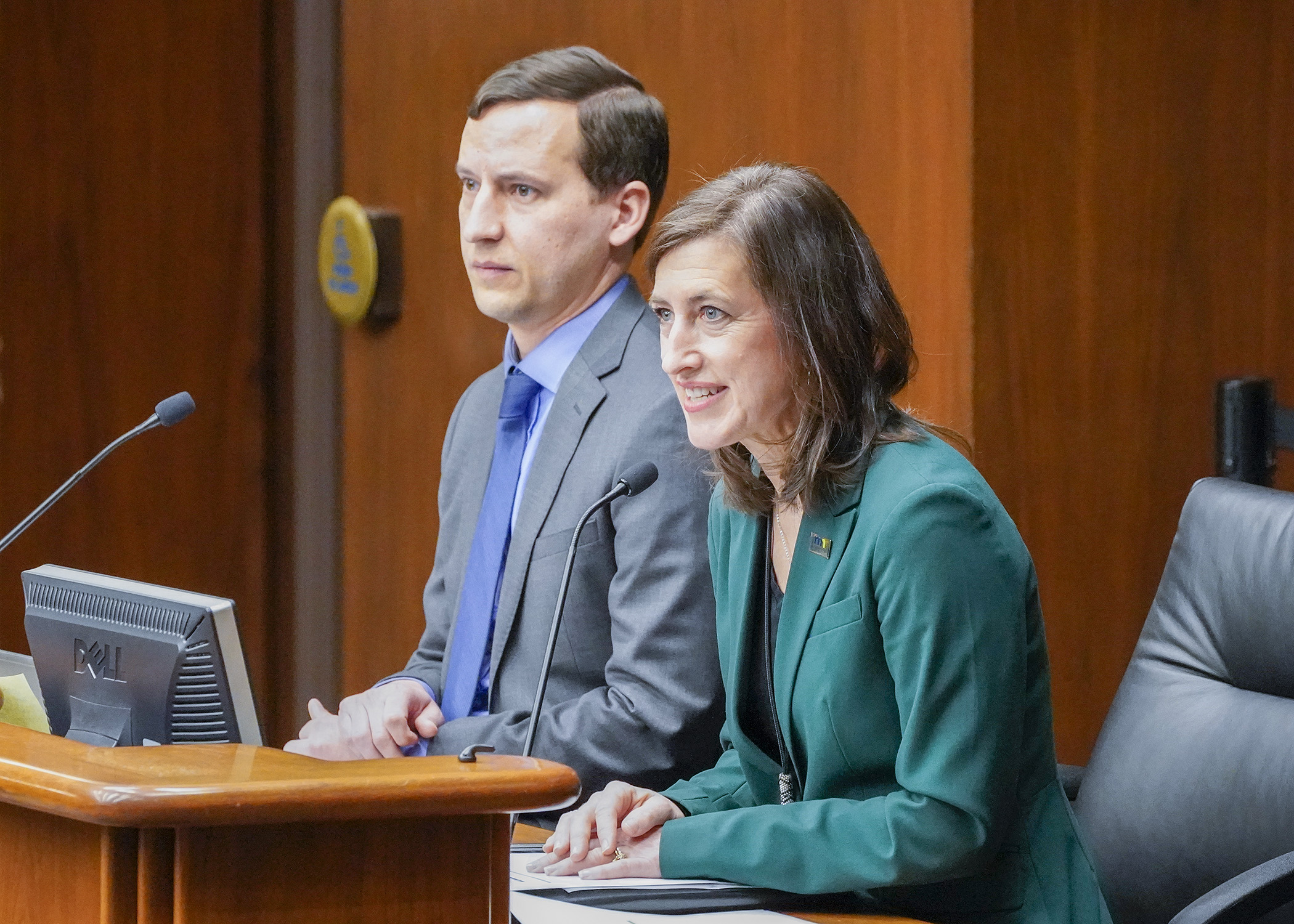Walz transportation budget proposes maximizing federal funds now, increasing tab fees for future

(CORRECTION: The original post stated the proposed tab fee resturucture would generate $700 million annually. It is over four years.)
REFILED Feb. 10, 2023 — A boost in state funds for roads, bridges and highways can leverage billions in federal money through the Investment in Infrastructure and Jobs Act.
But the Department of Transportation could see lower-than-projected revenue as factors such as more fuel-efficient vehicles and chip shortages stall new car sales and impact gas tax revenue, motor vehicle sales tax and tab fees.
Gov. Tim Walz’s transportation budget recommendations, presented to the House Transportation Finance and Policy Committee Thursday, reflect both realities.
The department is seeking $722 million more for its multimodal transportation package over the next four years with a good chunk of that going for a state match to federal funds. MnDOT officials also propose restructuring tab fees, which is estimated to raise an additional $700 million over the next four years.
[MORE: See the MnDOT budget overview]
Transportation package
In its transportation package, MnDOT proposes an additional $90 million per year in trunk highway funds and $50 million in trunk highway bond sales. There is an ask of $364 million more over four years in a multimodal transportation package.
This includes:
- $29 million in discretionary grants;
- $17 million for transit programs outside the metro area;
- $10 million for cities under 5,000 population;
- $6.5 million for state airport infrastructure; and
- $3.4 million for electric vehicle charging infrastructure.
Among other recommended increases for the next four years are:
- $19 million invested into technology systems;
- $15.1 million for operations of the Twin Cities-Milwaukee-Chicago passenger rail;
- $15 million for aeronautics systems;
- $11.6 million for sustainable aviation fuel pilot system;
- $8 million to maximize federal climate funding;
- $7.3 million for a local disaster support fund; and
- $5 million for rail grade crossing safety.
Tab fee restructure
The budget recommendations also seek to address long-term revenue issues by restructuring tab fees — a move that could add $700 million in new revenue to the Highway User Tax Distribution Fund, whose use is divided between Minnesota’s municipal state-aid roadway system, county state-aid roadway system, and the state trunk highway system.
The restructure would change the depreciation schedule used to calculate the fees; therefore, there would be a relatively large boost in the year one fee and a smaller increase in years two through 10.
Using a $40,000 new car as an example, the tab fee would go from $524 to $832 — a difference of $308 in year one. The owner would pay $51 more in tab fees each year in years two through 10. After that, fees would be $5 less each year compared to current fees. About half the cars on the road are 11 or more years old.
Related Articles
Search Session Daily
Advanced Search OptionsPriority Dailies
Legislative leaders set 2026 committee deadlines
By Lisa Kaczke Legislative leaders on Tuesday officially set the timeline for getting bills through the committee process during the upcoming 2026 session.
Here are the three deadlines for...
Legislative leaders on Tuesday officially set the timeline for getting bills through the committee process during the upcoming 2026 session.
Here are the three deadlines for...